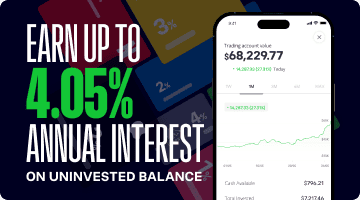What did CES 2026 bring from an investor's perspective?
The annual Consumer Electronics Show in Las Vegas remains the ultimate barometer for the tech...
Banks kick off the earnings season for Q4 2025
The US banking sector is stepping into the spotlight this week as the Q4 2025 earnings season...
Ethereum: Busy Network, Bored Price?
Analyst Weekly January 12, 2026
Ethereum is doing a lot, even if the token price doesn’t show it...
Venezuela in Focus
Analyst Weekly, January 5, 2026
The year began with an unusually abrupt geopolitical headline:...
Financials Are Back in the Game
Analyst Weekly, December 22, 2025
After spending most of the past two years in the penalty box,...
What awaits interest rates in the US, Europe, the UK, Japan and Czechia in 2026?
A week filled with important macroeconomic data and key meetings of four central banks— including...
Will Santa Bring a Year-End Stock Market Rally?
As Christmas approaches, investors’ hopes rise for the traditional year-end rally in the stock...
Legendary Investors Rattled The Markets In Q3
The world’s top investors once again showed their hand. 13-F reports, which detail what stocks...
AI Cooldown
Analyst Weekly, December 15, 2025
Cannabis Stocks: Can 2026 Finally Be a Turning Point?
After a...
Watching Japan Like a Hawk
Analyst Weekly, December 8, 2025
A BOJ hiking cycle could be 2026’s biggest macro plot twist....



